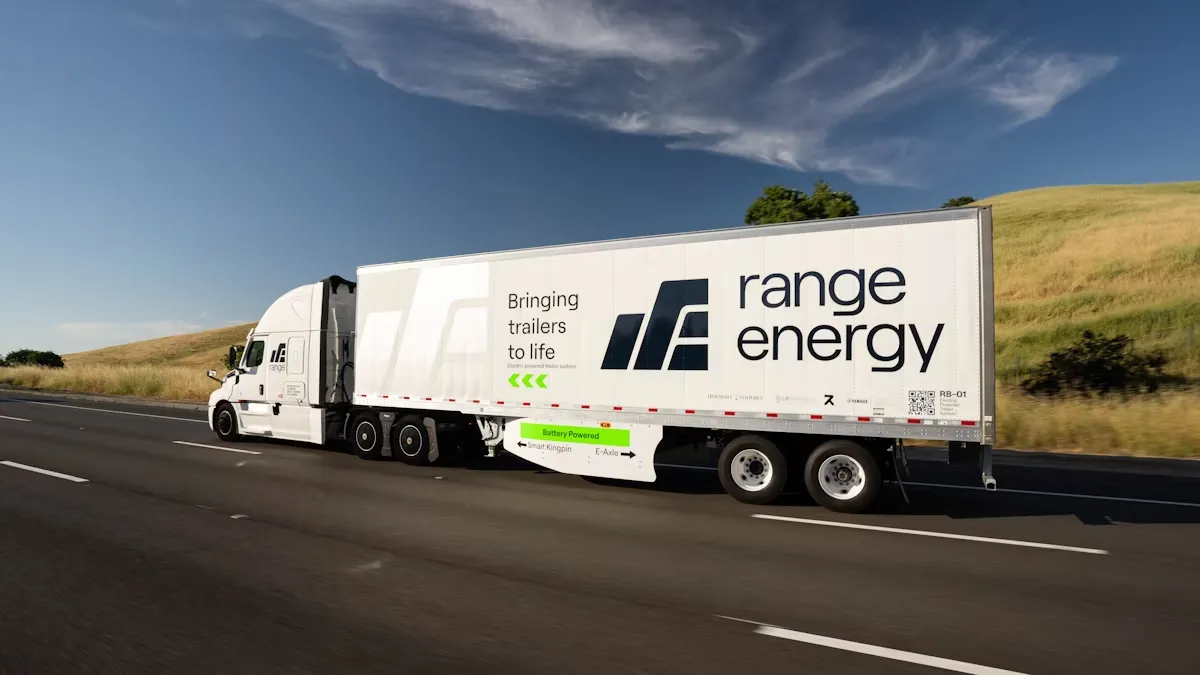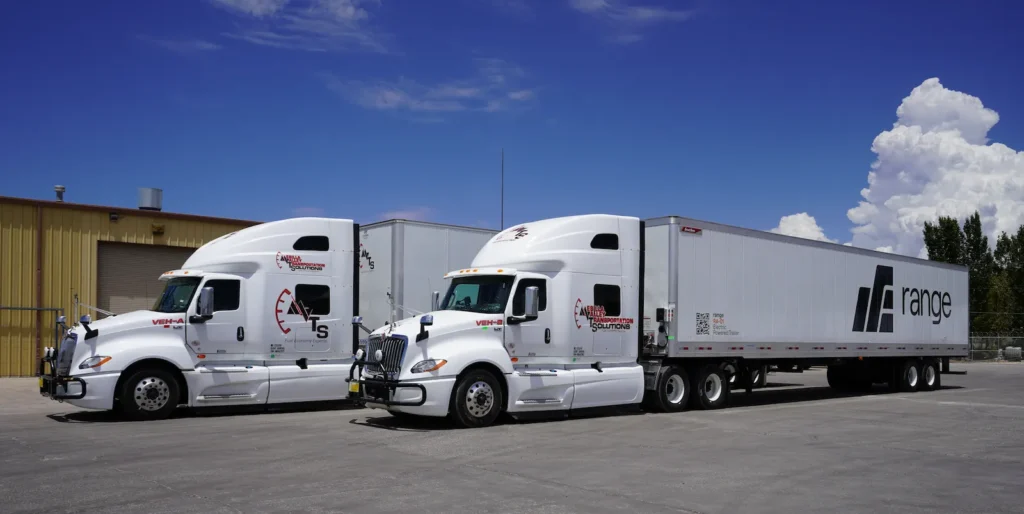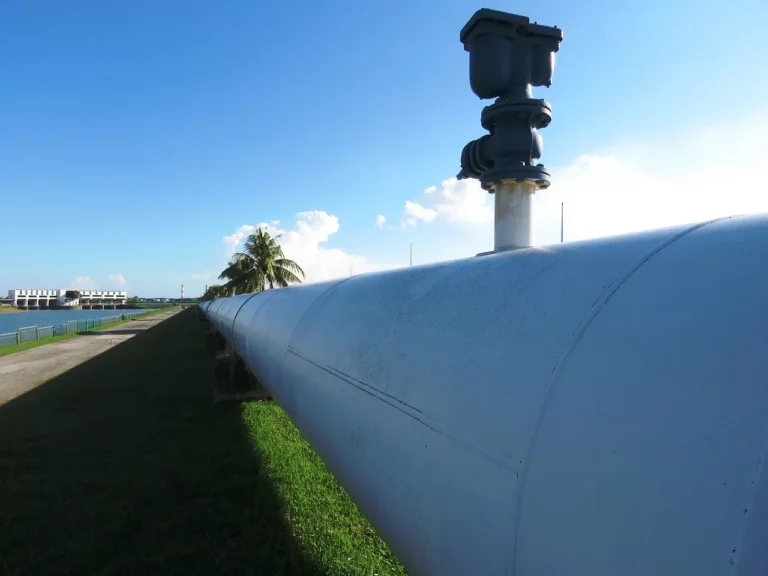
Range Energy and ESL Power Team Up on Electric Trailer Charging
Range Energy, a trailblazer in the electrification of commercial trucking, has announced a strategic partnership with ESL Power Systems, Inc. (ESL), a reputable manufacturer known for its reliable and safe charging infrastructure. The goal of this partnership is to deliver practical, cost-effective, and scalable charging solutions that support the electrification of the commercial trucking sector. Central to this collaboration is Range Energy’s innovative eTrailer System, a technology designed to hybridize existing diesel-powered trucks, thereby reducing emissions and operational costs while leveraging the advantages of electric power.
This new alliance exemplifies how existing infrastructure, such as shore power systems, can be repurposed to support the growing needs of hybrid-electric and electric commercial vehicle operations. With the urgent demand for emissions reductions in the transportation sector, particularly in logistics and freight, the combination of Range’s eTrailer System and ESL’s charging solutions offers a promising pathway forward. The companies are focused on deploying real-world solutions that can be integrated into current operations without requiring a complete overhaul of facilities or practices.
Range Energy will expand its portfolio of electrification tools by incorporating ESL’s AC charging technologies. These systems are known for their simplicity, cost-efficiency, and ease of deployment. In preparation for commercial rollout, both companies will conduct extensive interoperability testing. These tests aim to ensure seamless hardware and software integration between the eTrailer and ESL’s charging systems. Efficiency and reliability will be key focuses, ensuring that fleet operators can rely on consistent and effective charging performance without disruption to their logistics schedules.

Another cornerstone of the partnership involves collaboration with environmental and air quality regulatory bodies, particularly in California, where zero-emission transportation policies are among the most ambitious in the world. The companies will jointly participate in demonstration projects designed to prove the commercial and operational viability of electrified trailer operations. These projects will also highlight the benefits of electrifying transport refrigeration units (TRUs), a major contributor to greenhouse gas emissions within the logistics sector.
ESL will provide 480V 3-phase charging hardware, a proven and robust solution suitable for fleet-scale applications. This hardware will be installed at various fleet operation sites participating in the demonstration programs. During these demonstrations, the equipment will support the regular operation of Range’s electrified trailers, allowing real-time performance evaluation and feedback. Following the completion of the demonstration period, the charging units will remain at the fleet sites, thereby reinforcing long-term infrastructure improvements and supporting continued electrification.
Jon Foster, CEO of Range Energy, emphasized the significance of this collaboration, stating, “Collaborating with ESL represents a critical step towards electric and hybrid-electric commercial fleet operations. By demonstrating the real-world feasibility of affordable alternating current (AC) charging to support electric and hybrid-electric fleet operations, we are proving that practical electrification solutions exist today.”
This sentiment reflects a broader trend in the transportation industry: the shift from theoretical or pilot-scale concepts to scalable, deployable technologies. Range Energy is seeking to bridge the gap between existing diesel-dominated fleets and the fully electric fleets of the future, using technologies that can be implemented with minimal friction.
Jonathan Daou, Product Manager at ESL, also spoke to the importance of this initiative. “Fleet operators are increasingly looking for dependable and scalable charging infrastructure to support electrified operations. We are fulfilling that need by providing a high-performance charging solution that enables Range’s system to seamlessly integrate into fleets’ daily operations. This is important to ensure that the integration of electric equipment doesn’t negatively impact fleet operations, while simultaneously supporting commercial trucking’s transition to electric power for a more sustainable future.”
The compatibility between ESL’s systems and Range’s trailers is expected to facilitate a smoother and faster transition to electrified operations for fleet operators. Instead of facing the significant barriers of investing in entirely new vehicle platforms and infrastructure, fleets can adopt hybrid-electric solutions that use existing diesel tractors while enjoying the benefits of reduced emissions, lower fuel consumption, and regulatory compliance.
From a policy and environmental standpoint, the timing of this partnership is strategic. With states like California introducing stricter regulations on emissions and offering incentives for zero-emission technologies, the deployment of Range’s eTrailer System paired with ESL’s charging infrastructure allows fleets to future-proof their operations. These technologies not only help meet regulatory requirements but also provide a practical roadmap for other regions aiming to replicate California’s model.
The environmental benefits are significant. Hybrid-electric trailers reduce reliance on diesel engines, especially in urban areas where air quality concerns are most acute. Transport refrigeration units, which often run independently on diesel fuel even when parked or idle, can now operate using electric power supplied through the ESL charging infrastructure. This reduces emissions, noise, and fuel costs, contributing to both sustainability goals and operational efficiency.
Moreover, the affordability of AC charging technology offers a key advantage. Unlike more complex and expensive DC fast charging systems, AC charging is well-suited for overnight or scheduled depot-based charging, aligning well with the operational patterns of many fleet companies. The simplicity and scalability of AC charging further lower barriers to entry, making it accessible to smaller fleets that may not have the resources to invest in high-voltage fast-charging solutions.
The demonstration projects in California will also serve as vital case studies for the broader industry. These real-world deployments will generate data, insights, and lessons that can inform policy, refine technology, and inspire confidence among stakeholders. The fact that the installed chargers will remain with fleet operators after the demonstration phase underscores the enduring value of this initiative.
As the global logistics sector intensifies efforts to decarbonize, partnerships like the one between Range Energy and ESL Power Systems are crucial. They illustrate that the path to electrification does not require dramatic reinvention. Instead, by building on existing assets and technologies, and combining innovative thinking with practical engineering, the industry can achieve meaningful progress toward sustainable operations.







